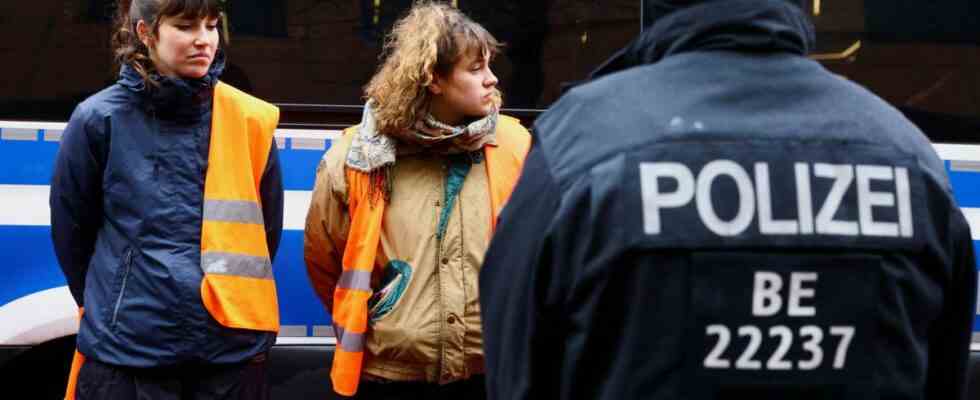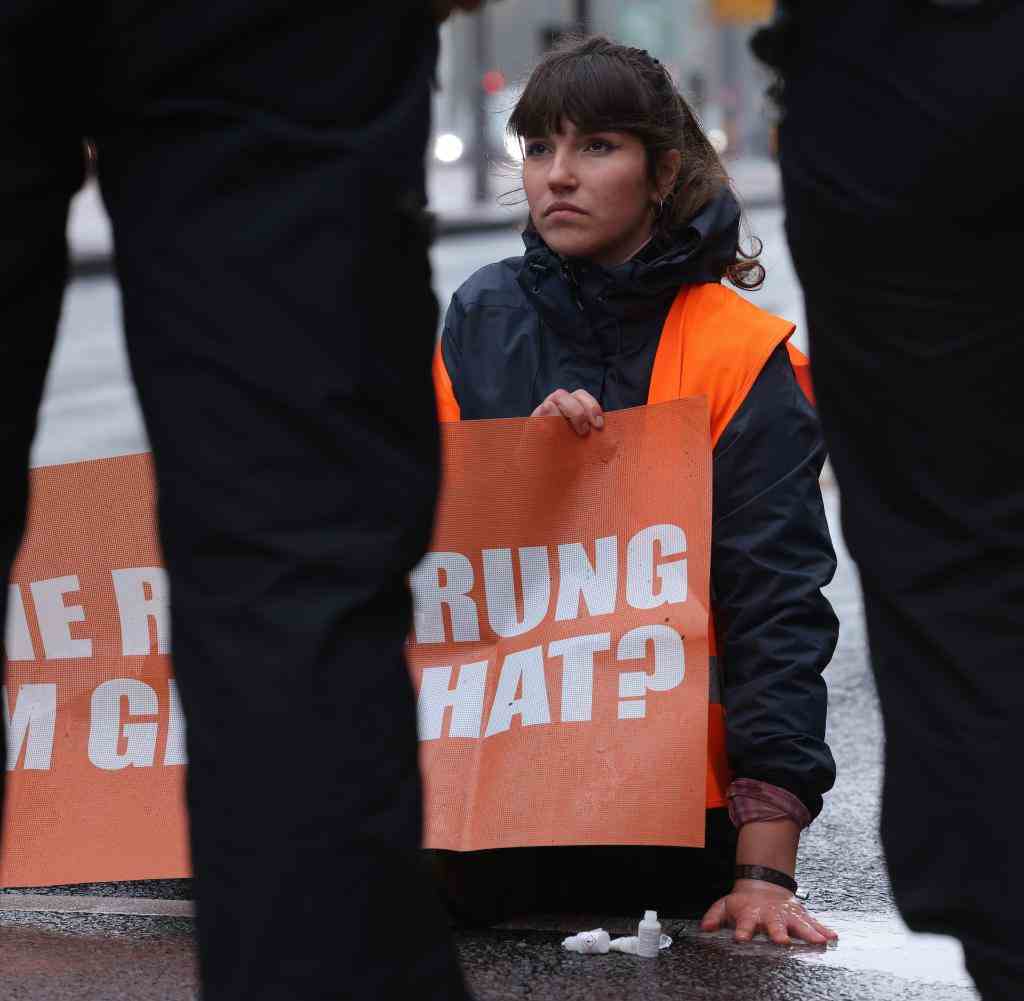“Criminal organization”? House searches of “Last Generation” activists
Raids on self-proclaimed climate activists in six federal states
With searches in at least six federal states, the police and public prosecutors have taken action against climate protection demonstrators from the “Last Generation” group. Apartments and other rooms in Bavaria, Baden-Württemberg, Hesse, Lower Saxony, Mecklenburg-Western Pomerania and Saxony are affected
In several places in Germany, police officers are searching the homes of climate activists. There is an allegation that they have formed a criminal organization. The investigation was apparently triggered by a protest at a pipeline.
AOn Tuesday morning, police officers searched eleven homes of activists from the climate protest group Last Generation. The investigators confiscated laptops, mobile phones and posters.
As WELT learned, the Neuruppin public prosecutor is responsible for the investigation. Senior public prosecutor Cyrill Klement said that search warrants from the Neuruppin district court would be carried out across Germany. According to the “last generation”, the searched objects include apartments in Bavaria, Hesse, Lower Saxony, Baden-Württemberg, Mecklenburg-Western Pomerania and, according to information from WELT, in Brandenburg.
The investigations were apparently triggered by sabotage actions by the “last generation” on a pipeline in Schwedt. Activists there had tried several times since the spring to interrupt the flow of oil. The affected PCK refinery had the activist by their own account in October offered a dialogue. However, further protest actions at a pumping station caused the talks to be broken off without result.
According to the senior public prosecutor’s office, Klement, the allegation of forming and supporting a criminal organization under Section 129 of the Criminal Code is also involved. The suspicion of the formation of a criminal organization can be given if the accused repeatedly arrange to commit crimes.
The investigations mark a change of course by the authorities in dealing with the activists. Most recently, the Berlin Attorney General’s Office came to the conclusion that the “last generation” was not a criminal organization. Shortly thereafter, the interior ministers of the federal states decided to create a nationwide situation report on the protest actions of the group.
Criticism by Neubauer
Paragraph 129 of the Criminal Code is not uncontroversial in Germany. Critics refer to him as “snooping paragraphs“. If the authorities investigate the formation of a criminal organization, this opens up far-reaching opportunities for them under certain conditions. Investigators can then tap phones, bug rooms and observe people. Nationwide, however, only about five percent of all investigations under Section 129 lead to indictment.
Aimée van Baalen, Speaker of the “Last Generation”, said about the searches: “All because the federal government is breaking our constitution and still not complying with the Paris Agreement and these people are taking to the streets because of that.” to gather publicly, to band together as a group, and also to resist. If this principle is criminalized, it threatens the foundations of democracy.”
Luisa Neubauer, one of the best-known German climate activists, also described the searches as “boundlessly disproportionate” and “absurd action”.
The investigations are apparently directed against, among other things, “Last Generation” spokeswoman Carla Hinrichs. Hinrichs wrote on Twitter: “It’s scary when the police go through your closet. But do you seriously think we’re going to stop now?”
Hinrichs at a roadblock in Berlin
Source: Getty Images/Sean Gallup
Activists of the “last generation” had interrupted the oil supply to the PCK Schwedt refinery several times since the spring at pumping stations in Mecklenburg-Western Pomerania and Brandenburg. In some cases it was just an attempt. For this, activists had penetrated the premises of the pumping stations. With 1,200 jobs, PCK Schwedt is the most important refinery for supplying East German petrol stations with fuel.
The apartments of several activists had already been searched in November on behalf of the Dresden public prosecutor’s office. They are suspected of damaging property. They are accused of having glued themselves to the frame of the painting Sistine Madonna in Dresden in August. The property damage was 4000 euros.




